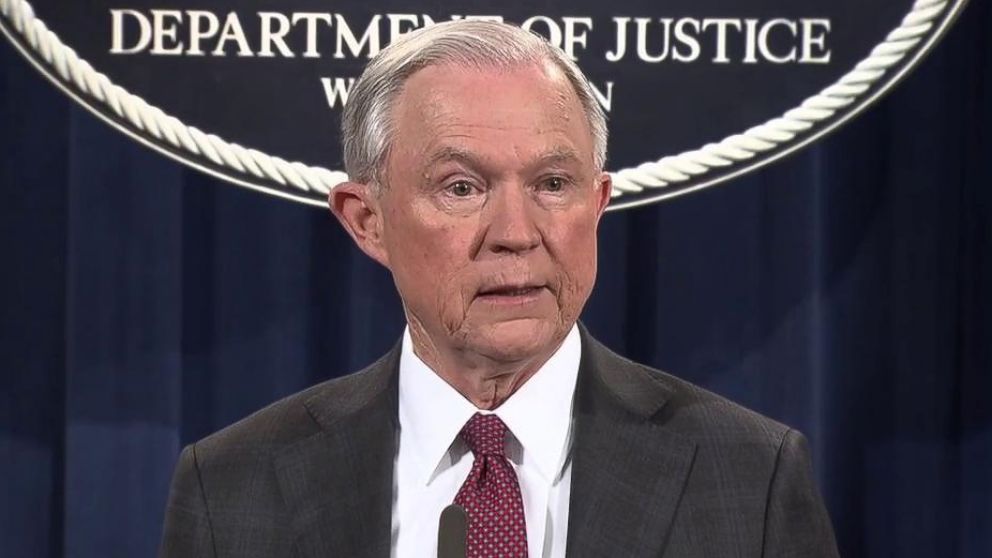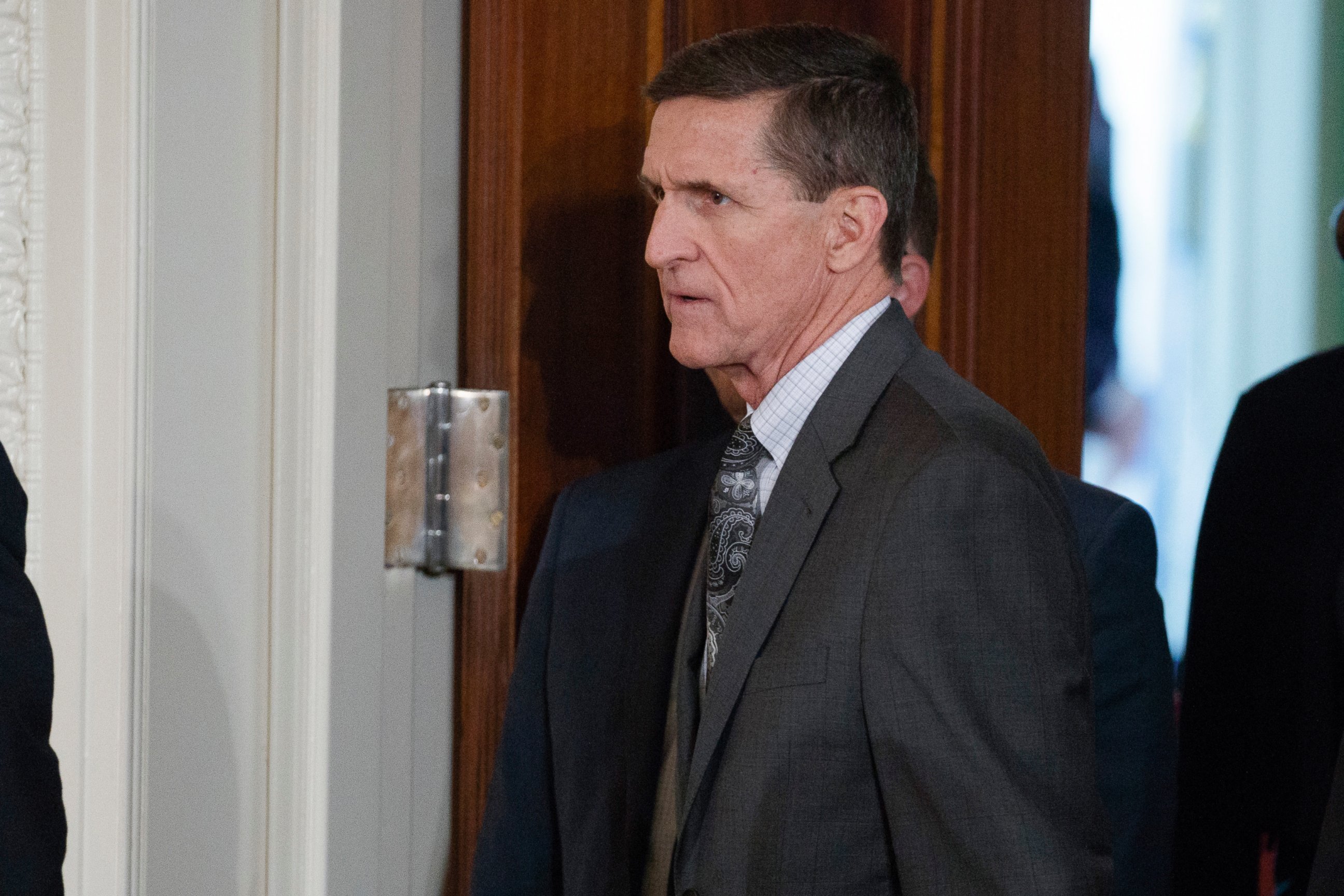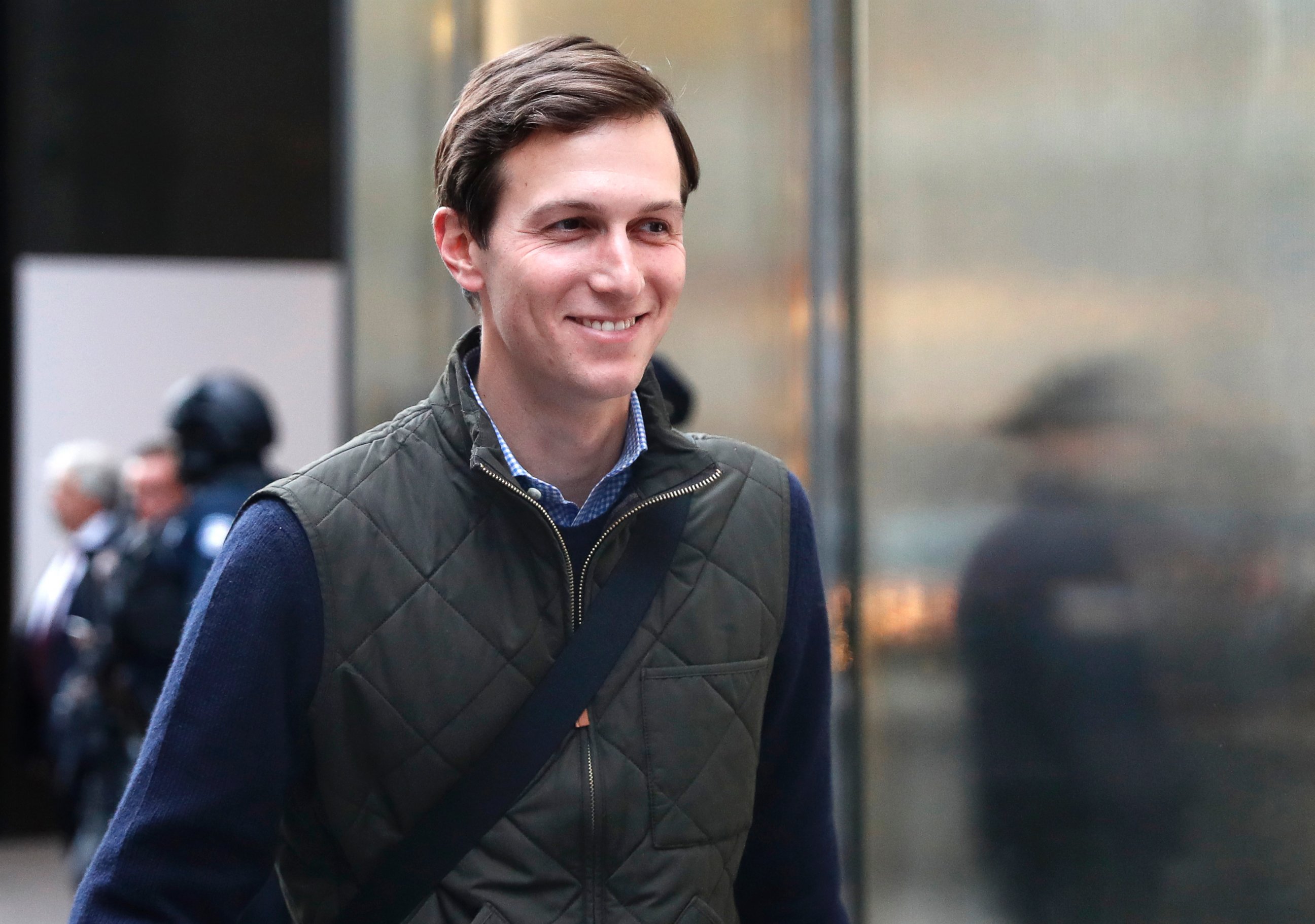Sergei Kislyak, the Russian ambassador who has the ear of Trump’s key people
Ex-U.S. ambassadors caution meeting with Sessions not necessarily unusual.
MOSCOW -- Sergey I. Kislyak, Russia’s normally low-key ambassador to the United States, has found himself suddenly at the heart of a political furor over his communications with advisers to Donald Trump, first with ousted national security adviser Michael Flynn, and now with Attorney General Jeff Sessions and Jared Kushner, President Trump's son-in-law and close adviser.
On Thursday, Sessions recused himself from any investigation into Russian meddling in the U.S. presidential elections amid calls to resign over allegations he misled the Senate about two meetings he held with Kislyak last year. The attorney general has been accused of potentially lying under oath after he said during his confirmation hearing that he had “not had communications with the Russians” when questioned if he was aware of any contact between the Trump campaign and Moscow.
The Department of Justice said late Wednesday that Sessions met twice with Kislyak during the campaign but in his capacity as a senator on the Armed Services Committee.
The revelations about Sessions has re-ignited the controversy around Trump and Russia, with the Russian ambassador again in the center of it.
White House spokeswoman Hope Hicks said there was a meeting with the Russian ambassador in Trump Tower in December with Flynn and Kushner, as first reported by The New York Times.
At the heart of the uproar would be an uncomfortable place for an envoy known as a consummate diplomat who normally seeks to avoid making himself the focus of attention, a former U.S. ambassador to Moscow told ABC News.
“He likes to operate behind the scenes,” said John R. Beyrle, U.S. ambassador to Russia between 2008 and 2012. “He’s a professional diplomat, not a politician. I’m sure he’s surprised to have acquired such notoriety recently. I'm sure he’s probably not enjoying his time in the limelight."
Kislyak has been ambassador to Washington since 2008, a post viewed as second only to foreign minister within Russia's diplomatic hierarchy. Educated as a nuclear physicist, he joined the foreign service in the 1970s. A former deputy foreign minister, he led the ministry’s work on arms control in the 1990s, putting him in close negotiations with the U.S.
This isn't his first posting to America. In the 1980s, he served as first secretary in the then-Soviet embassy in Washington, following a stint in the USSR mission to the United Nations in New York, according to his embassy bio. Unlike many senior figures under Vladimir Putin, Kislyak has no formal background in the intelligence services, having worked his way up through the diplomatic corps, making his name as an arms negotiator.
In Washington, Kislyak is known as a highly skilled diplomat, noted for his professionalism. As ambassador throughout a particularly rocky time in U.S.-Russia relations, Kislyak is considered a stout defender of Moscow's positions, but not a hardliner himself, and is regarded as effective at finding dialogue.
“A very capable guy, professional and by the book,” said Matthew Rojansky, director of the Kennan Institute at the Wilson Center, who has advised Congress on Russian affairs. “He also operates at very high levels in Washington, and he has done a good job of getting outside the beltway. I've seen him at major Russia-related events around the country, and heard him talk about lectures and conversations with students and ordinary citizens all over the place.”
With heated speculation around the Trump campaign's relationship to Moscow following a U.S. intelligence assessment that the Kremlin ran an espionage operation to tip the election in Trump's favor, Kislyak's contacts with Sessions are attracting intense scrutiny, with some suggesting Kislyak may be an intelligence agent.

CNN cited anonymous current and former U.S. intelligence officials on Thursday as saying they believed Kislyak was a top spy and recruiter of spies. But former U.S. ambassadors, as well as analysts that know Kislyak, expressed strong skepticism about the claim, cautioning that besides Sessions' failure to acknowledge it there was little unusual that he had met with Kislyak.
“If he’s a spy then all ambassadors are spies,” said the former ambassador, Beyrle. “He’s not a spy. To call him a spy is to misunderstand what a diplomat, even a Russian diplomat, does.”
Steven Pifer, an expert at the Brookings Institution and a former U.S. ambassador to Ukraine, said he also thought Kislyak’s meeting with Sessions was more likely standard ambassadorial work.
“Short take: he was doing his job and trying to talk to someone who might give a sense of Trump's policy leanings,” Pifer wrote in an email reply to ABC News.
Kislyak's meeting with Sessions would be standard work for any ambassador, Beyrle said, saying it is the job of ambassadors to seek meetings with high-level officials in order to convey their government's position, as well as trying to glean that of the U.S.

"Kislyak is doing what he’s supposed to be doing. He’s out there talking to as many influential Americans as he can. That’s his job," Beyrle said. "It’s frankly not odd in the least for him to have met Jeff Sessions, a senior senator on the Armed Services Committee, up on Capitol Hill.”
Beyrle added that it is legitimate to ask what Sessions had told Kislyak, and whether he had been misleading in not revealing the meeting during his Senate confirmation hearing.
A spokeswoman for Russia’s foreign ministry, Maria Zakharova, attacked the uproar around Sessions' meeting in similar terms.
"I'll reveal a top secret -- diplomats do work, and their job is to establish contacts with people,” she wrote in a sarcastic Facebook post.
At a news conference announcing his recusal, Sessions said his meeting with Kislyak had been just one of many he had with foreign ambassadors at the time. He said the two had met at Kislyak’s request and described the talk as forgettable.
“Just normal things,” Sessions said. "I don’t remember a lot of it. Thought he was pretty much of an old-style, Soviet-type ambassador."
Asked whether they might have talked about the elections, he said it was possible but didn’t think so. “Most of these ambassadors are pretty gossipy, and this was in campaign season, but I don’t recall any specific political discussions," Sessions said.
Explaining why he had omitted the meeting at his confirmation hearing, he said he had been so intent on rebutting allegations that he had had constant contacts with Russian intelligence officials that he had forgotten to.
“In retrospect, I should have slowed down and said, ‘But I did meet one Russian official a couple of times, that would be the ambassador,’” Sessions said.

Though obviously engaged in gathering information for their home governments, it is unusual for ambassadors to be accused of spying. Pavel Felgenhauer, a well-connected Moscow-based military analyst, said it was also rare in any case for Russian ambassadors to be spies.
“Ambassadors are separate from the special services. It’s normal procedure,” Felgenhauer said. “Of course, they are not the most important guy in the embassy, quite often,” he joked, referring to military and foreign intelligence operatives also stationed in the embassy.
Ambassadors, he said, usually do not have authority over those operatives.
Besides, Felgenhauer said, “Having a meeting in your own office with an ambassador -- it’s not a clandestine meeting, under the bridge or something.”




